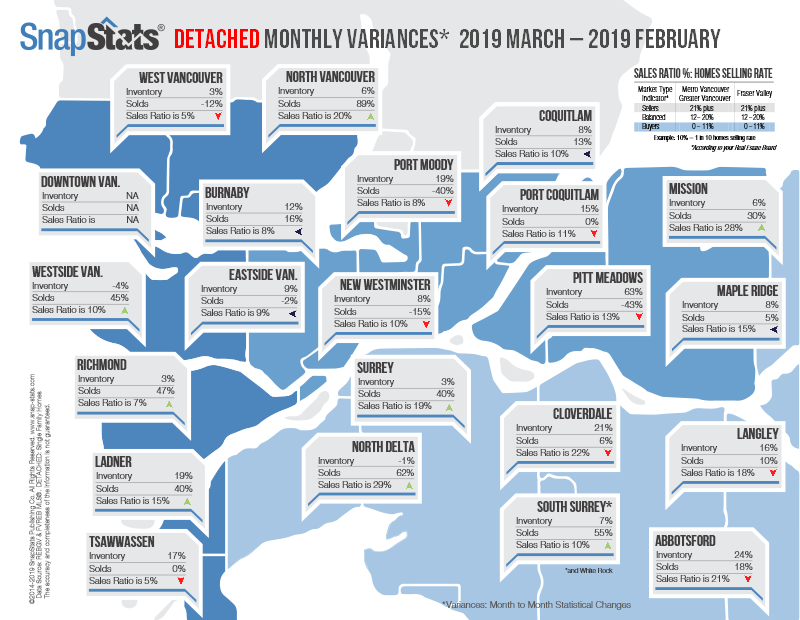Blog
Checklist to Buy Your First Home in 2019
So you’ve decided to buy your first home? Before you can get started on putting offers out there, you’ll have to check a few things off your to-do list first.
Have a Decent Credit Score
The higher your credit score, the better your chances will be for being approved for loans and having your offer accepted by sellers. You’ve been gathering a credit history since you took out your first credit card. With a range between 300 and 850, you’re going to want the highest score possible, especially when shopping around for mortgage rates.
Check Current Mortgage Rates
The housing market and mortgage rates are susceptible to change every year, whether that means they’ll rise or fall. In 2019, mortgage interest rates are predicted to rise. However, your specific rate will depend on many factors, including your overall debt, the value of your assets and the length of the mortgage. Looking at the current rate, you or another source will be able to calculate the monthly mortgage payment you’ll be able to afford.
And Talk to an Advisor
Once you’ve determined what’s financially doable for yourself, it’s time to look for a mortgage lender who will provide you with concrete numbers. Not sure where to begin? The bank is a great place to start! They’ll be able to recommend companies and advisors that are trustworthy. Once you’ve found one, ask question after question regarding first-time buyer plans, how long getting approved will take and what fees are included.
Get Pre-Approved
Once you’ve found a mortgage broker that you can work well with, it’s time to start the pre-approval process. Especially when you’re looking to buy your first home, obtaining a pre-approved mortgage allows you to act quickly when the perfect home appears on the market. Because the pre-approval process can take some time, it’s a good idea to get all your documents gathered and ready to go when the moment strikes.
Things to Avoid
When you begin the hunt for your first home, don’t open a new line of credit, as this may negatively affect your credit score. Make sure you stick with the same job and aren’t late when making debt payments. Lastly, avoid overspending, as you’ll need to save as much money as possible for unforeseen expenses that may occur.
Find a Trusted Real Estate Agent
You’re about to make a big purchase and could probably use all the help you can get, which is why it’s a good idea to work with a real estate agent. Make sure you find someone you’re comfortable working with, who has your best interests in mind and won’t let you overpay for a property. Talk to family and friends for agent recommendations, as you’ll have prior knowledge of how competent they’ll be.
At you looking to buy a condo in Vancouver and need a trusty real estate agent that knows the area? Then choose Cherry Yeung as your Burnaby real estate agent! With in-depth experience and knowledge about the Burnaby housing market, Yeung has a great track record for finding her clients the perfect home. So contact Cherry Yeung, one of Burnaby’s top realtors today to get started on your house hunting journey.

Freehold vs Non Freehold Estates
The two ways to hold title on a property is by owning or leasing it. A landlord’s claim to property is considered a freehold estate while a tenant’s title to a property is classified as a non-freehold estate. There are some key differences between the two types of claims that you should be made aware of regardless of if you are an owner or tenant.
Freehold estate is ownership of land. Two conditions must be met for a property to be considered freehold:
- No fixed length of ownership – There is no predetermined timeline for the claim of the property to expire – it can be passed on forever.
- Immovable – The title cannot be moved so it must be land or possess some sort of interest in land.
Types of freehold estates
There are three classes of freehold properties. They can all be passed on indefinitely, and some require specific conditions to be met to do so while others do not.
- Fee simple absolute – The most common type of property ownership. The land can be used unrestrictedly within the confines of the law, especially zoning laws. There is no set length of ownership as long as taxes and the mortgage are paid. It can be transferred or sold to someone else. This type of property can also be inherited if the owner dies.
- Fee simple defeasible – This type of land ownership is subject to specific conditions. These could be that the land must be used to grow corn or solely for educational purposes. If these conditions are violated then the ownership of the property is automatically terminated. The ownership of the land can also be terminated by the owner, which is instead called a fee simple subsequent.
- Life estate – This type of property remains in the title of an individual for as long as the person who granted them the title in it is living. The person awarded the title is called the life tenant. They are responsible for making sure the property is in adequate condition. Although, the life tenant ceases to have claim over the property once the grantor dies.
Non-freehold estates
There are four types of non-freehold properties:
- Estate for years – This type of lease has a set duration with a beginning and ending date. Most lease agreements would be classified as an estate for years.
- Year to year estate – This type of lease renews each year. Typically, after a fixed term lease expires, a tenant becomes an individual becomes a periodic tenant. For example, this could happen when a one year lease ends on December 31st, and the landlord accepts payment on January 1st so that the tenant can continue to live there. The tenant would now be considered a periodic tenant. The landlord or tenant would now have to give notice of termination of the agreement much further in advance. Usually, one to two months before the lease would automatically renew.
- Tenancy at will – There is no written contract between the tenant and landlord in this agreement. Either party can end the lease at any moment. There may still be requirements for how much notice must be given depending on municipal laws.
- Tenancy to sufferance – Also known as a holdover tenant, this happens when the tenant’s legal right to reside at a property ends. The tenant no longer has the landlord’s permission to remain and could face legal action to be removed.
Whether you are looking to rent or own property, knowing the difference between these two estate types is crucial. Contact Cherry Yeung before you sign an agreement, and she will make sure the contract is in your favour.

Is now a good time to buy a house?
Real estate is a cyclical market making when you buy just as influencing as where you buy to the cost of your mortgage. Once you get pre-approval for a mortgage, you have a few months of flexibility to find a place, but that could go against you.
If the market is moving quickly, you may not be able to wait until the perfect property is listed. It is recommended to start looking as soon as you get approved at what is already listed and pick out of those selections. Although, there is one time of year when prices are lowest.
The holiday season in December has the least amount of buyers looking for homes. The chance of multiple offers or much competition is low, and sellers are more inclined to be generous during this time of year. Fewer buyers also mean fewer listings though, so the selection may not be as plentiful. In a tight market, closing on a home during an unpopular time of year can save you thousands.
Currently, house prices are levelling off after years of being on the rise, and interest rates are on the rise. While prices and listings go up and down month to month, it can be difficult to say with certainty whether buying this year is better than next. It is best to buy a home now if you plan on living in it for at least 10 years. If you cannot afford your dream home now, wait until you can to buy a home. Do not purchase a house with short-term intentions as you will end up paying more substantial real estate tax and legal costs.
It is essential to consider how owning a home will affect your lifestyle. The monthly payment may seem affordable but owning a home is different from renting in that you must also factor in insurance and maintenance. It is better to wait until these expenses are more comfortable to take on.
If you are sure about affording a home and plan on staying in it for more than a decade, then a sizeable downpayment is essential. You should put at least 20% down so that you can eliminate the need for CMHC coverage and a large down payment forces you to save aggressively. An aggressive savings plan is good practice for your future mortgage. Do not feel like you must own home for financial reasons. Buy a house because it will make you happy and continue saving until you can put at least 20% down on a place you see yourself owning for at least 10 years.
The best time of year to buy is in the winter, but if you missed this opportunity, there is no need to fret. It is more important to be sure you can take on the expenses and responsibility of home ownership. Just as it is impossible to time the stock market, it is impossible to know for sure if prices are higher or lower than they will be next year. An experienced real estate agent can help you navigate this tumultuous market and find a home that works for you.

Tips for Buying a Home in the Best Location
Do you know the three most decisive factors for choosing a home? Contrary to what most home buyers believe, the answer is location, location and location. This is what experienced real estate agents believe. The primary reason for this is that your house can be upgraded to your tastes but what remains unchanged over the years is the location.
Why Home Location is Important
- Lifestyle Comforts: It is the location of your home that decides commuting ease, proximity to convenience stores, quality of your neighbourhood, schools, hospitals and social life. All of these add up to give you the lifestyle of your dreams. Even if you pay extra for a coveted location, in the long run it may turn out to be a better bargain. Where you live decides everything.
- Higher Home Resale Value: A home in a great location makes a better investment. There is every chance of higher returns while selling in the future. A smaller home in a convenient location will earn you more money than a bigger home in an inconvenient location. The demand increases over time with greater development.
The question is, how do you choose the best location for yourself? Popular real estate agent in the Vancouver Area, Cherry Yeung explains better.
How to Determine the Best Location
Geography: Start with assessing the geography of your location. Is the home located on a hilly area or flat land? Is it easy to get there or hard for guests to locate? Are you prepared for a cooler home on higher ground? Does it have adequate drainage facilities during heavy rain? Is it near the woods, near the sea or located in the heart of town? Are you prepared for wild animals invading your yard if it’s located near the woods? Geography is a factor you can’t overlook.
Urban, Suburban or Rural: Are you a city lover or a loner at heart? Would you like to be located near all amenities and conveniences or prefer to be away from it all? Do you like to spend your weekends in the mall or away from shopping centres? Do you need to be close to healthcare centres, grocery stores and most importantly, your workplace or are you willing to commute long distances? Weigh the odds carefully before making the decision.
Safety and Security: This should be a prime concern, especially if you have children or ailing parents with you. Homes in high crime or questionable areas are usually cheaper than those in safer neighbourhoods. Should you compromise on home safety for a few extra dollars? Will you be able to find a buyer for your home if it’s located in an unsafe neighbourhood?
Quality of Schools: Considering a good school district is important whether you have children or not. A premium school attracts families who place importance on quality education. Consequently, homes in the area are usually more expensive. The school district directly impacts the price of a home and conveniences in that area such as public transport, community centre and leisure activities. If you are dependent on buses, cabs or trains, you may want to keep that factor on top of your mind.
Commuting Ease: Commuting distance and proximity to the workplace can affect your quality of life. Long hours of commuting time can tire you out, increase stress and reduce your interest in your new home. Do you enjoy driving or leaving your home earlier to reach your workplace on time? Would you prefer to be located closer to your job area? On the other hand, homes in the heart of town may be more expensive and compact than homes in the suburbs.
Contact Cherry Yeung, Personal Real Estate Corporation
When it’s time to buy a home, contact Cherry Yeung to make location hunting easier. With years of experience in the Vancouver area, she knows the do’s and don’ts of buying or selling a home. Get in touch today and get started!






